Interviews with experts and opinion leaders from our research network
In order to achieve the World Bank Group’s mission of poverty eradication and prosperity sharing, private investments in developing countries such as in Asia and Africa have attracted much attention. In the meantime, companies and financial institutions need to be careful about political risks they may face when they make investment decisions. In this issue, we interviewed Keiko Honda, Chief Executive Officer of the Multilateral Investment Guarantee Agency (MIGA), headquartered in Washington D.C. and a member of the World Bank Group, which provides guarantees against losses arising from political risks in developing countries.
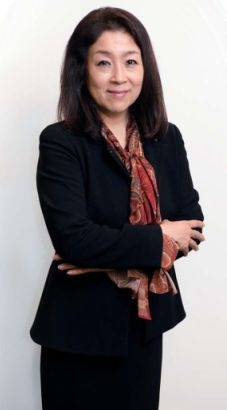
Chief Executive Officer, Multilateral Investment GuaranteeAgency (MIGA)
Honda joined MIGA after her career with Bain & Company,Lehman Brothers, and McKinsey & Company as a director (seniorpartner).
She was a visiting associate professor of the Financial Strategy course, Graduate School of International Corporate Strategy, Hitotsubashi University, a lecturer of the Chuo Graduate School of International Accounting, and a visiting professor at Waseda University. She also served as a member of the Council for
Regulatory Reform, Cabinet Office of Japan.
Honda co-authored Makkinzee Gasshorenko Senryaku (Alliance Strategy of McKinsey) (Toyo Keizai Inc., 1998), and Makkinzee: Jigyo Saisei – Taanaraundo de Kigyokachi wo Takameru (McKinsey: Business Revitalization – Enhancing Corporate Value through Turnarounds) (Diamond Inc., 2004) and translated Value: The Four Cornerstones of Corporate Finance, McKinsey & Company et al. (Diamond Inc., 2012)
Shirai:I understand that MIGA is a member of the World Bank Group, and aims at promoting foreign direct investment (FDI) in developing countries by providing guarantees to investors and financial institutions against political risks, including war, terrorism, civil disturbances, nationalization, expropriation and non-honoring of financial obligations by the host governments. Can you tell us about the background to the establishment of MIGA and its history?
Honda: While the scale of private investments has become significantly larger than that of Official Development Assistance (ODA), ODA was still the main vehicle 20 to 30 years ago when MIGA was founded. In such an environment, there was greater awareness toward the more effective utilization of private investments. However, there were various risks for the private sector. It was against this backdrop that an international organization, MIGA, was established to guarantee against certain political risks and promote private investments. Initially, MIGA provided guarantees against political risks for equity investments by overseas investors, which, in addition to new investment cases, also included those for expansion, modernization, improvement and enhancement of existing projects. Currently, MIGA provides political risk insurance to protect lenders of interest-bearing loans such as banks, as well as guarantees against non-honoring of payment obligation by governmental organizations for loans that private financial institutions make for promising development projects.As the situation has been affected by the capital requirements for banks, which became stricter since the financial crisis in 2008, we are expanding our scope of coverage while assisting investors to deal with the requirements.
Shirai:Basically, MIGA’s insurance covers cross-border investments. When we look at the world now, agreement has been reached on the Trans-Pacific Partnership (TPP) negotiations, and efforts for regional coordination are progressing with free trade agreements (FTAs) and customs unions, for example, in Asia and Africa. Compared to when MIGA was established, do you see new developments in cross-border investments?
Honda: Although I have not compared the current situation with that 27 years ago when MIGA was set up, I believe it is undeniable that cross-border investments have grown in geometric progression. This is quite obvious when we look at what has been happening in the past 10 years or so. However, the current situation of investment in developing countries tells us that 70% of it goes to countries with at least a triple-B credit grade. While cross-border investments in those countries have been increasing, the amount of investment in those with lower grades still remains small.
Shirai:Private companies like Hitachi which are engaged in the infrastructure business in emerging countries face a wide range of problems. When investing in a single country can be difficult enough, they face even tougher issues in cross-border investments, such as having to coordinate the interests of the countries involved. Can you explain the roles of MIGA in tackling these problems with some specific examples?
Honda: As I mentioned earlier, MIGA focuses its efforts in two business areas. One is insurance against political risk. It covers risks such as currency inconvertibility to prevent investors converting dividends or loan repayments into other currencies, transfer restrictions to ban transfer of currencies, expropriation through nationalization to eliminate ownership or control, breach of contract by the host governments, defaults to repay debts or failure to honor guarantees, and war, terrorism and civil disturbance, which damage assets or force projects to be suspended. The other is credit guarantee which we started recently. Our credit guarantee also protects loans made by governments, certain types of local government and state-owned enterprises.
Honda: We are offering a guarantee to a project in Zambia by Hitachi Construction Machinery. In August, I visited the country to see the project. Zambia has a large copper mine where Hitachi’s construction machinery is used. Over time after the delivery of the machinery, these machines required repair work. Previously, the machines used to be transported to South Africa for maintenance, after which they had to be sent back to Zambia. Because of the long distance between the two countries, the company set up maintenance facilities in Zambia, and the project seems to be going very well. I heard that the project will be expanded. Some concerns raised by the said company included risks of conflict and nationalization. MIGA provides all-round support to the company by addressing these risks. At the same time, we also conveyed these concerns to the Zambian government, finance ministry and the president of the central bank.
Shirai:Reading through materials prepared by MIGA, I see that projects to be covered by its guarantees are those which must be financially and economically viable, environmentally sound and consistent with the labor standards and development objectives of the host country. These can be taken for granted in developed countries, but these seem to be rather high hurdles for emerging ones. What are the actual evaluation work and process before arriving at the final decision as to whether MIGA would provide guarantees?
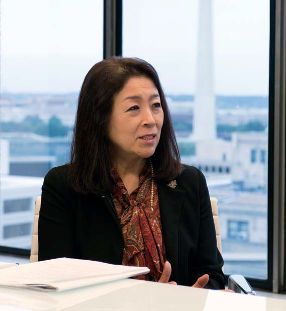
Honda: The process begins with the submission of an application. After checking if the investment can fulfill the desired effect of development, we send our staff to the actual location to perform due diligence* in terms of impact on the environment and society, as well as development effect. We also consider profitability because private investors will withdraw unless a certain profit can be expected as a business. All applications must be examined by the board of directors. If the board decides in favor, we will provide a guarantee. In addition, we perform on-site investigation during the course of approved investments, which we call monitoring. For monitoring, we conduct surveys on environmental and social impacts. If issues are found, experts at MIGA will try to figure out solutions. Because similar issues often arise in countries such as Zambia, Cote d’Ivoire and Myanmar, we would convey information on the approaches other companies have adopted in a similar situation so that the issues can be dealt with. Without exception, each investment case encounters issues during the process. We tackle the issues one by one as they arise. MIGA proposes measures to resolve them to guide investments toward success. As we have many cases with major companies as our customers, we are also assisting them to ensure that they fulfill their social responsibility.
Shirai:With MIGA being a member of the World Bank, it seems important to define the roles each will play and to coordinate with the Bank. In reality, how are you cooperating with the Bank and proceeding with your work?
Honda: The President of the World Bank is also MIGA’s President. Though day-to-day work is managed within MIGA, a joint meeting for coordination with the Bank is held once every week or fortnight. As a member of the meeting, I just attended one which started at 7:30 am this morning. If there is some issue, information about it is first shared at this meeting. MIGA does not have an office in each country, but because the World Bank has offices in almost all countries, the Country Director, who is the representative in each country, skillfully coordinates matters to make our work proceed smoothly. In Zambia, which I mentioned just now, we have a female Country Manager from Germany. She has solid understanding on the case of Hitachi Construction Machinery and established a thorough support system that allows her to consult with the government if any issue arises.
Shirai:Let me turn to Asia, which is also known as the growth engine for the world. In recent years, there have been many developments in the region such as economic integration of the Association of South-East Asian Nations (ASEAN), the Regional Comprehensive Economic Partnership (RCEP) and TPP. When advances toward economic integration in ASEAN, do you think that there will be new developments in cross-border investments for enhancing infrastructure, which, for example, links the countries in the Mekong region such as Cambodia, Thailand, Vietnam, Myanmar and Laos? Are there any particular sectors or endeavors in Asia that MIGA places focus on?
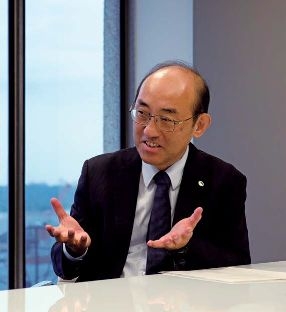
Honda: As you have said, there is no doubt that Asia has been leading the growth of the world economy in recent years. And while the region is occupying the position of a good model for development, I believe there is still room for improvement. MIGA and the World Bank Group have two objectives. One is eradication of poverty and the other is sharing of prosperity. We define extreme poverty as the situation where people live on less than $1.90 per day. Because Asia has a large number of such people, we are putting in great effort to support them. As economic polarization is progressing, which creates a large income gap between rich and poor, a more important issue, I think, is to fill the gap. You mentioned infrastructure improvement to connect neighboring countries. Speaking from a regional perspective, I think we should be involved in formulating measures designed not for a single country but a group of countries, such as electricity transmission from a country with a surplus to its surrounding countries. The World Bank Group will be able to demonstrate its capability of multilateral transactions in projects like this. Talking about investments in individual countries, we must also be active in supporting those that are receiving insufficient assistance. And there are many such countries. For this, we need coordination within the entire World Bank Group. The Bank, the International Finance Corporation (IFC) and MIGA, members of the Group, aim to realize the objectives through coordination to understand the situation of each country and to bring project plans forward.
Shirai:In addition to those you have just described, are there other sectors or categories in which MIGA would like to take part in more actively?
Honda: The projects protected by MIGA’s guarantees have contributed to job creation, improvement of infrastructure such as water and power supply, enhancement of financial systems, ensuring tax revenues, transfer of technology and know-how, and utilization of environment-friendly resources. The World Bank defines “Fragile and Conflict-affected Countries” as low-income countries with weak institutions or policy implementation capability and poor ones experiencing severe conditions due to conflicts. MIGA would like to provide support to those countries.
Shirai:Next, let’s talk about Africa. We had a conversation at the World Economic Forum. At that time, several things surprised me. I had thought that civil wars were still continuing in Africa. In fact, they are ending in most African countries and efforts are made to establish regional coordination at the same time. Meanwhile, it is an undeniable fact that many countries in the continent are still poor. In that sense, I think the roles that are expected of MIGA are significant. What is MIGA’s main focus in Africa?
Honda: Providing assistance in sub-Saharan Africa is a top priority of the World Bank Group, and MIGA’s guarantees have a critical role to play for attracting investments from overseas for development projects in the region. Effort by MIGA is twofold. Enhancement of infrastructure is one, which is lagging behind compared to Asia. Much of the power generation capacity in the region lies in South Africa. There are many countries in such a vast continent, but because the generation capacity of each country is limited and the condition of roads needs to be improved, we would like to put in further effort in these respects. Another point is providing support to keep projects going. Because of the recent dip in resource prices, the investment scene is stagnant with investors adopting a wait-and-see attitude for new investments. As the dependence on natural resources is high in Africa, we are exploring ways of support to keep the projects going. More specifically, we have ongoing talks about several projects to see whether they can continue if the cost for financing is reviewed and reduced slightly.
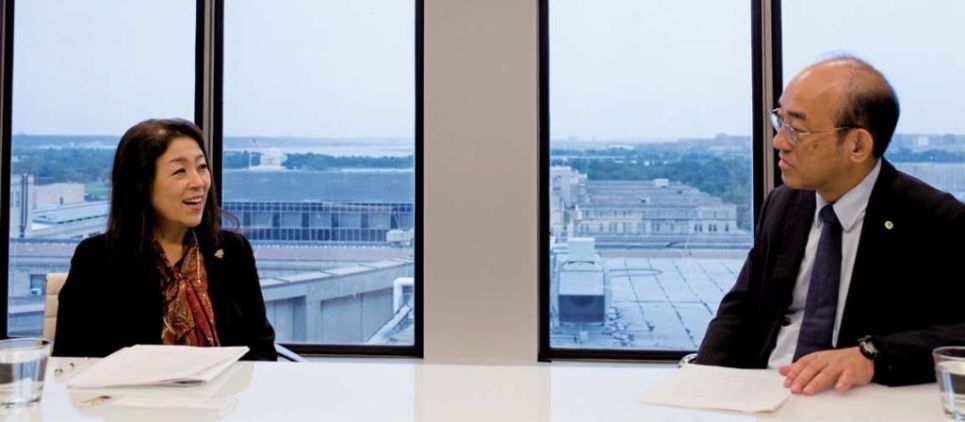
Shirai:Even in South Africa, the most economically advanced country in the continent, there are areas where electricity is in short supply. We also see imbalance between South Africa and much poorer countries around it. Even though the civil wars have come to an end, the situation is still tough. There seem a lot of issues to be addressed in order to realize regional coordination. What are some possible new approaches that you can think of?
Honda: After all, I have a strong desire to broaden the range of private investors. We are thinking about offering credit guarantees to obtain capital from major banks not only in Europe but in the United States and Asia, including Japan - that is, banks in relatively wealthy countries that have not invested in Africa before. There are some cases where we provide more generous guarantees. In the market these days, there is growing popularity in public-private partnership (PPP), which provides public services through coordination between the public and private sectors. For example, in many power-generation PPP projects, private investors in the power generation business conclude electricity purchasing contracts to sell the generated power to the power companies in the respective countries for transmission and distribution. MIGA is offering contract guarantees for such projects and going a step further to provide them in countries where there is difficulty in defining investment requirements. The headquarters of the African Development Bank is located in Cote d’Ivoire. It was temporarily moved to Tunisia during the civil war in the country. MIGA had started providing guarantees in Cote d’Ivoire before the headquarters returned there soon after the end of its civil war. We will enhance our effort to actively expand the range of our assistance.
Shirai:2015 saw the establishment of the Asia Infrastructure Investment Bank (AIIB) that is led by China, and it has attracted much attention in Japan. Initially, Japan was observing the establishment of the Bank in a detached manner. As it turned out, more than 50 countries decided to invest in the Bank, an unexpectedly large number. Some say, perhaps due to influence by media reports, that this is a challenge to the postwar regime of the World Bank and the International Monetary Fund (IMF). How are the World Bank and MIGA seeing the recent behavior of China, with its setup of the AIIB as the foremost example?
Honda: From the international point of view, we would like to establish a partnership with the AIIB, as the capital supply is not keeping up with the scale of demand. When I visited Beijing last year, I had meetings with AIIB officials. As the AIIB, unlike MIGA, is not planning to provide guarantees at least for now, we conveyed to them our intention to work with the AIIB when the opportunity arises.
Shirai:With an investment ratio of 5.1%, Japan is the second largest contributor of MIGA after the United States. What would you say about the roles Japan should play to improve infrastructure in developing countries and to promote investments by private companies? What is your impression when you look at Japan now not as a member of the Japanese government but from outside Japan as someone working at an international organization?
Honda: In terms of the number of investors with MIGA, Japan is ranked 6th. In the past, Japan was not even among the top 10 countries. The amount of investment from Japan has been increasing significantly over the past two years or so. What I would like Japanese investors, rather than the government, to note is that there are enough business opportunities in Africa to make profit. They should not hold a prejudice against Africa because of its political risks and other concerns. I really want them to consider investing in Africa. Many investors whom I have come into contact with have no experience in doing business in Africa. One of MIGA’s roles would be to disclose information in a detailed and yet easy-tounderstand way to assist those people. MIGA provided a guarantee to the Japan Bank for International Cooperation (JBIC) when the Bank was considering investing in hydropower generation in Indonesia. A standard loan by the JBIC usually requires a debt guarantee from the government of Indonesia. However, governments are very reluctant to guarantee debts these days because they are worried that this may have a negative impact on their credit rating. We therefore persuaded JBIC to utilize MIGA’s contract guarantee which I mentioned earlier, instead of a guarantee by the Indonesian government. We also talked to the government about providing our guarantee. Another case that is ongoing is a joint guarantee with Nippon Export and Investment Insurance (NEXI) (against fund transfer restrictions, expropriation, and war and civil disturbances) to be offered to a Japanese company. As the scale of investment has become much larger than before, I believe that both MIGA and NEXI can make contributions in many different ways by sharing certain risks.
Shirai:Japanese companies are involved in infrastructure business around the world. Hitachi is also focusing on the business field of infrastructure. In infrastructure business in emerging countries, competition is intense as companies from China, in addition to those from developed countries such as Germany, have been very active. What expectations do you have of Japanese companies that are expanding their infrastructure business?
Honda: Japanese companies like to have “all-Japan” teams, but the recent trend is to form teams that consist of members from a multiple number of countries, or what I would call “multinational teams.” For example, the team for the project in Cote d’Ivoire which I mentioned earlier consists of members from three or four countries, including France and Korea. Positive effect gained through such cooperation is considerable as the companies in the team possess expertise in different areas. For this reason, I would like Japanese companies to consider forming multinational teams for investment. I had an opportunity to talk to a manager of the Korean company in the team. He said he learned a lot of things by working with a French company, and doing so also motivated the Korean members. Likewise, Japanese companies should consider doing business not only as a member of “all-Japan” teams but also as a part of multinational ones.
Shirai:Today, we have learned a lot about the roles of MIGA and infrastructure business. Lastly, I would like you to talk a little about yourself. After working as the first female senior partner at the Asia division of McKinsey & Company, you were appointed Chief Executive Officer of MIGA. What are the things that you always bear in mind when working with people from many different countries at an international organization?
Honda: Study, everyday (laughs). Needless to say, I need to communicate with my staff in a way so that they can understand what I want to convey. In addition, I believe that it is very important to think about how to motivate them, as it would not be possible for them to read what I think based on tacit understanding.
Shirai:I know that you also worked with non-Japanese people in your previous job at McKinsey & Company. Is it a totally different world to work at an international organization?
Honda: In my previous job, there were many members from developed countries and they share similar educational backgrounds, graduating from similar universities or graduate schools. In that sense, although we were not communicating with each other in Japanese, it was still possible to have tacit understanding without explicit explanation. MIGA has a larger diversity among its staff, which, I believe, is a great challenge. At the same time, however, this is also what makes working at this organization worthwhile, and I will continue to work hard (laughs).
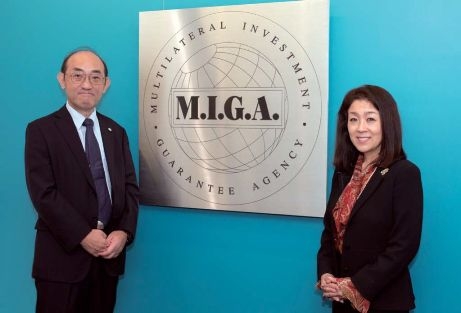
Shirai:You have already achieved a lot with your career. What would you like to achieve at MIGA or what are your dreams?
Honda: After joining the World Bank Group, one thing I truly realized was that for some years after World War II, Japan was a recipient of investments. The first bullet train line was built with a World Bank loan. Over time, Japan became a donor, making investments and providing assistance. It is this kind of support I would like to provide to many countries in the world so that they can follow the example of Japan. When I talk to Japanese government officials who are old enough to remember the time when Japan was receiving loans from the World Bank, they say, “Japan received help then. We must do something now.” I think it would be wonderful to provide a loan that creates added value and leaves something memorable in people’s hearts. 10 years or perhaps 20 years from now, I would love to see young people from the countries now receiving investments say, “we are where we are because of MIGA’s guarantees. Now, it is our turn to support MIGA.” I would like to engage in work that can achieve this, and this is what I always tell my staff members.
Shirai:Many Japanese have forgotten that their country was receiving loans from the World Bank. As Japan was selected as the host of the 2020 Olympic Games, the media are reporting how the bullet trains came into being. That helps to remind people of the support from the World Bank that the country received many years ago (laughs).
Honda: Yes. If we continue, the readers would know how old we are (laughs).
Shirai:Thank you very much for your time today.
Honda: Thank you.
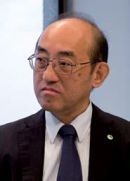
Ms. Keiko Honda is currently holding the position as MIGA’ s CEO who has experience in teaching at Japanese universities and graduate schools. With her explanation, we now understand how MIGA is assisting private investments by providing guarantees against risk in emerging countries and regions, what issues of development they are facing, and what roles Japan should play to promote investment. In the world where cross-border investments that go beyond the boundaries of countries and regions have been increasing, she emphasized the necessity of coordination not just within the World Bank Group but also with other international organizations to achieve poverty eradication and prosperity sharing. Her words have led me to reflect once again on the significance of addressing critical issues with partners. Her suggestion to Japanese companies about forming multinational project teams was very insightful as such a team allows each of its members to contribute their expertise in a more productive way.